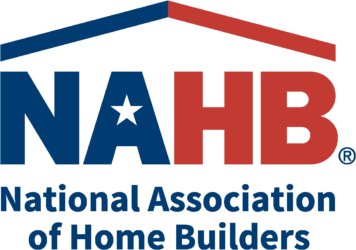A record number of millennials, individuals aged 18 to 34 years, are delaying household formation. This Great Delay, instead of the forbearance of impending doom, may actually be a sign of prudent economic decision making from a generation coming of age during turbulent economic times. Instead of forming a household, many have enrolled in college or stayed in school to pursue a college degree. This personal investment has short-run and long-run implications of great interest to the housing market.
When young Americans delay household formation, they often delay renting or buying a home. The relationship between the Great Delay and the housing market is most clearly seen in the record number living with their parents and the decline in homeownership rates among Milennials. For example, the U.S. Census Bureau quarterly survey of housing vacancy and homeownership shows that for adults under the age of 35 the homeownership rate dropped from a record high 43.6 percent in the second quarter of 2004 to its current record low of 36.2 percent in the first quarter of 2014.
The decline in the homeownership rate can be partly attributed to long-run demographic trends. Researchers point out that Americans, on average, are waiting 5 years longer to get married when compared to 1970. Additionally, Americans are waiting longer to have children. The average age at first birth in 2006 was 25 compared to the average age at first birth age of 21 in 1970.
The decline in the homeownership rate is also the result of short-run economic conditions. Facing poor earning potential without a college degree a record number enrolled in college; 38.9% of individuals aged 18 to 24 years in 2012. In addition, student loan debt soared to an average of $29,400 per borrower for the class of 2012, growing at an annual rate of 6% from 2007 to 2012.
The increase in college enrollment has significant implications on the future economic well-being of young adults. On one hand, those with a college degree have higher earning potential than those without a college degree, increasing both economic well-being and the likelihood one purchases a home. On the other hand, the increased reliance on debt to finance college attendance may crowd out home purchases.
Research shows an association between student loan debt and homeownership. At the national level, student loan debt increased while homeownership rate among those under the age of 35 years decreased. In additional, a recent study finds an association between the level of student loan debt and the probability of owning a home.
These studies describe the trend in economic conditions, student loan debt, and homeownership in the short-run. The studies, however, do not provide evidence that an increases in student loan debt decrease a borrower’s desire or ability to ever own a home. Instead, the dream of homeownership remains strong as evidenced by several recently conducted attitudinal surveys.
To isolate the relationship between student loan debt and homeownership in the long-run more research is needed. Researchers will also need to carefully consider the appropriate research question and appropriate policy prescriptions. The discussion must not lose sight of that fact that a college education in general is a sound investment in human capital and that the middle class holds most of its capital in housing. In fact, a recent study found that the cost of not going to college is rising faster than the cost of going to college. There appears to be a relationship between student loan debt and homeownership. However, homeownership and college education are far from a mutually exclusive concept.
Discover more from Eye On Housing
Subscribe to get the latest posts sent to your email.

7 thoughts on “The Great Delay: Student Loan Debt and Homeownership”